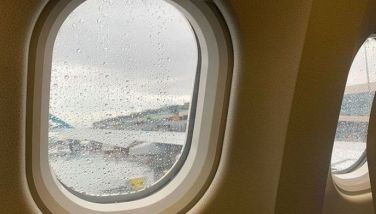Animal bureau imposes ban on poultry products from Malaysia
August 23, 2004 | 12:00am
The Bureau of Animal Industry (BAI) has imposed an indefinite ban on the importation of chicken, pet birds and other poultry products from Malaysia following the confirmation of an outbreak of the deadly avain flu near the border of Malaysia and Thailand.
The ban was issued by the government even as the Malaysian province of Sabah, which is very close to the Mindanao region is still considered free from the bird flu virus.
The Philippines does not import chicken from Malaysia, but the ban was imposed just the same because of the barter trade in Mindanao and Sabah. The trade includes exotic pet birds, wild and domesticated animals.
Agriculture Secretary Arthur C. Yap said BAI will continue imposing stringent measures undertaken at the height of the bird flu virus that plagued more than 10 countries in Asia early this year.
The virus which ravaged billions of dollars worth of poultry farms across Asia has been contained in recent months but has re-appeared in Vietnam, and Malaysia, which previously, like the Philippines was spared from bird flu, is now also contaminated with the disease.
Aside from the Philippines, only Brunei and Singapore are avian flu free while the hardest hit were Thailand, Vietnam, Laos, Cambodia, Japan and Taiwan.
The deadly bird flu virus also hit parts of the United States and Canada.
Yap said BAI has increased its monitoring and surveillance of smuggled poultry and pet birds from infected Asian countries.
"We are coordinating with the Department of Environment and Natural Resources because the bird flu virus can also be passed on to humans through pet birds like love birds," said BAI Director Jose Molina.
He said BAI is also keeping a tight watch on the flight of migratory birds, which can also be virus carriers.
The BAI is carrying out an emergency preparedness program with the Department of Health to monitor 20 priority areas including the Candaba swamp in Pampanga, Olango Island in Cebu and the Liguasan marsh in Maguindanao.
"We want to keep a tight watch in the Southern backdoor to prevent the entry of smuggled poultry and poultry products," added Molina.
Molina added that the DA and private sector are coordinating to put up diagnostic laboratories in case the virus slips through Philippine shores.
"We would not want to be complacent in our bird-flu prevention drive so that our poultry sector will not be undermined but instead become world-class and very competitive," Molina said.
The Philippines gained from the bird flu scare as Asian countries like Japan have closed deals with major poultry integrators in the country to fill the void left by major exporters Thailand and China.
The ban was issued by the government even as the Malaysian province of Sabah, which is very close to the Mindanao region is still considered free from the bird flu virus.
The Philippines does not import chicken from Malaysia, but the ban was imposed just the same because of the barter trade in Mindanao and Sabah. The trade includes exotic pet birds, wild and domesticated animals.
Agriculture Secretary Arthur C. Yap said BAI will continue imposing stringent measures undertaken at the height of the bird flu virus that plagued more than 10 countries in Asia early this year.
The virus which ravaged billions of dollars worth of poultry farms across Asia has been contained in recent months but has re-appeared in Vietnam, and Malaysia, which previously, like the Philippines was spared from bird flu, is now also contaminated with the disease.
Aside from the Philippines, only Brunei and Singapore are avian flu free while the hardest hit were Thailand, Vietnam, Laos, Cambodia, Japan and Taiwan.
The deadly bird flu virus also hit parts of the United States and Canada.
Yap said BAI has increased its monitoring and surveillance of smuggled poultry and pet birds from infected Asian countries.
"We are coordinating with the Department of Environment and Natural Resources because the bird flu virus can also be passed on to humans through pet birds like love birds," said BAI Director Jose Molina.
He said BAI is also keeping a tight watch on the flight of migratory birds, which can also be virus carriers.
The BAI is carrying out an emergency preparedness program with the Department of Health to monitor 20 priority areas including the Candaba swamp in Pampanga, Olango Island in Cebu and the Liguasan marsh in Maguindanao.
"We want to keep a tight watch in the Southern backdoor to prevent the entry of smuggled poultry and poultry products," added Molina.
Molina added that the DA and private sector are coordinating to put up diagnostic laboratories in case the virus slips through Philippine shores.
"We would not want to be complacent in our bird-flu prevention drive so that our poultry sector will not be undermined but instead become world-class and very competitive," Molina said.
The Philippines gained from the bird flu scare as Asian countries like Japan have closed deals with major poultry integrators in the country to fill the void left by major exporters Thailand and China.
BrandSpace Articles
<
>
- Latest
- Trending
Trending
Latest
Trending
Latest
Recommended



























